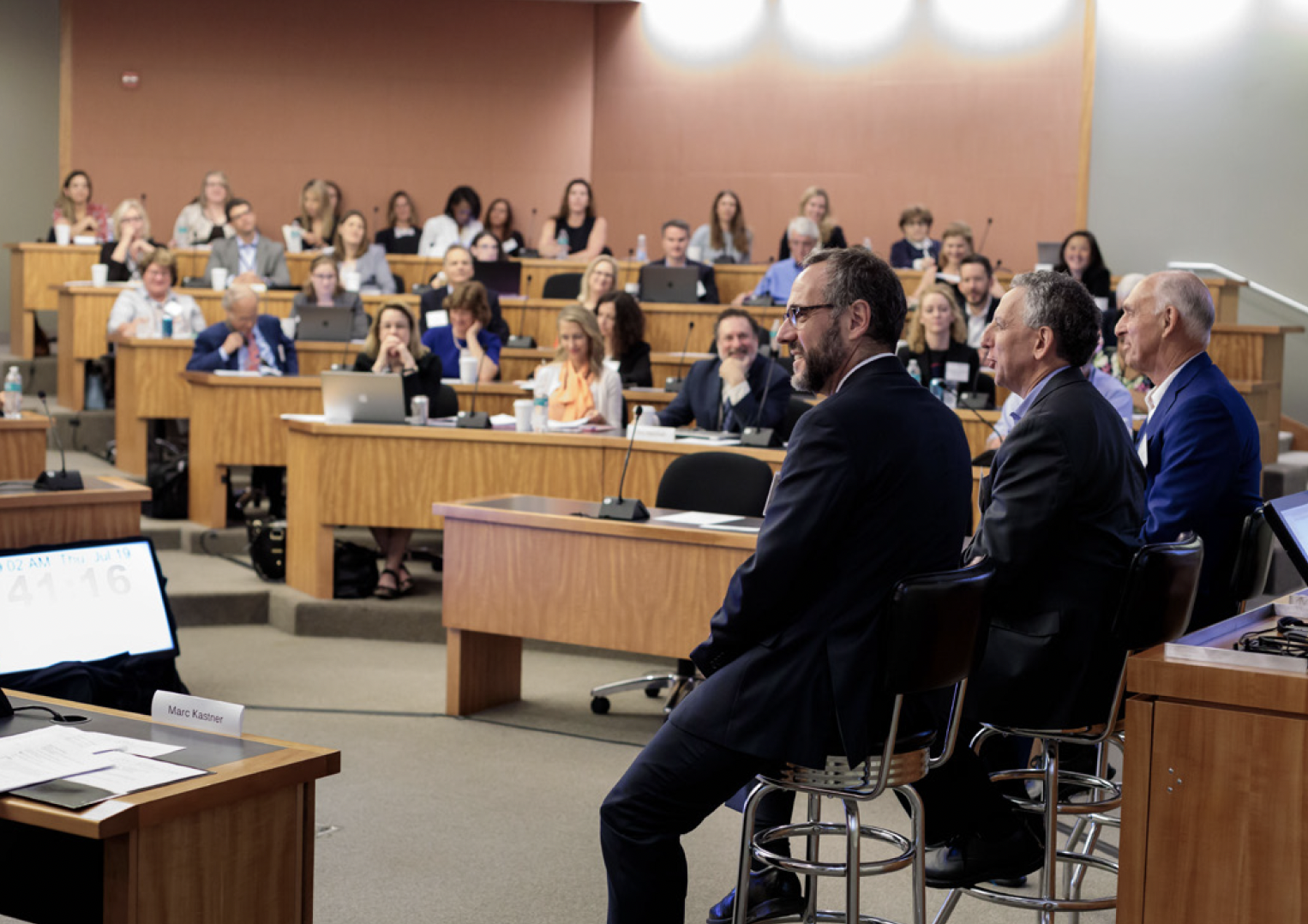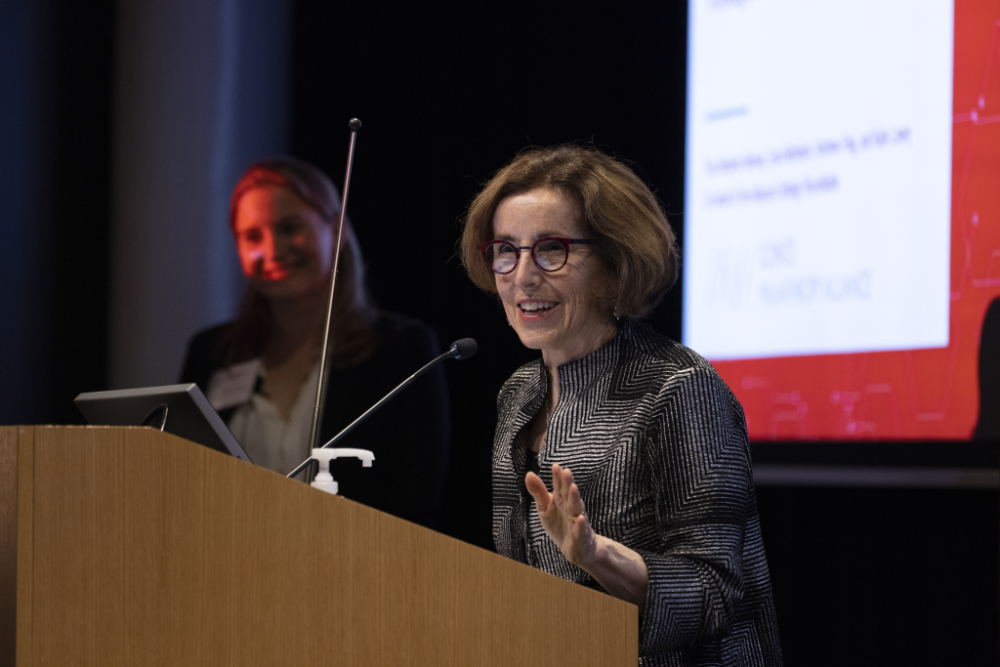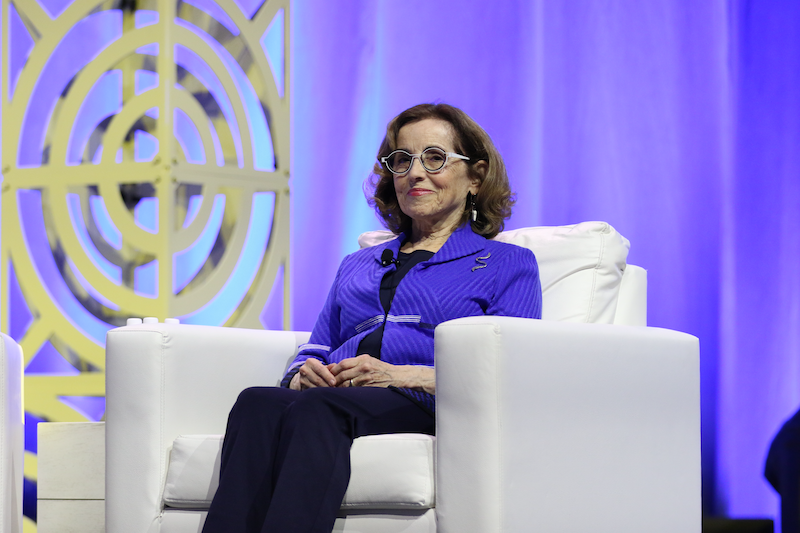Key Milestones
.svg)
Since our founding in 2014, the Science Philanthropy Alliance has helped shape the landscape of discovery science philanthropy—catalyzing new investments, guiding visionary funders, and fostering a growing network of members committed to advancing fundamental research. From hundreds of advisory projects to billions of dollars mobilized, the Alliance’s first decade tells a story of growing momentum, strategic collaboration, and lasting impact across scientific fields.
.svg)
The Science Philanthropy Alliance is founded by six foundations with a shared commitment to discovery science: The Kavli Foundation, Alfred P. Sloan Foundation, Gordon and Betty Moore Foundation, Howard Hughes Medical Institute, Research Corporation for Science Advancement, and Simons Foundation.
The Alliance names its first President, Marc Kastner, and Vice President, Valerie Conn, and develops its model for personalized advising services for philanthropists. A pivotal learning session on discovery science hosted by the Simons Foundation convenes Giving Pledge signatories, sparking strong interest in the Alliance and leading to a wave of new members.
The Alliance plays a key role in supporting the Chan Zuckerberg Initiative’s landmark $3 billion commitment to basic science. This public recognition significantly raises the Alliance’s profile and affirms its value as a trusted partner to new science philanthropists.

The Alliance enters a period of steady growth, expanding its staff with philanthropic and scientific experts to meet rising demand for its advising services. In recognition of its contributions, the Association of Independent Research Institutes (AIRI) presents the Alliance with its 2018 Public Service Award.
As the COVID-19 pandemic unfolds, the Alliance rapidly mobilizes its network, convening global infectious disease experts and philanthropic funders. By the end of 2020, the Alliance had influenced $133 million in funding for COVID-19-related research efforts and $210 million in science funding overall.

France A. Córdova is appointed as the Alliance’s president. A distinguished astrophysicist and former NSF Director, Dr. Córdova brings visionary leadership to the role. Under her guidance, the Alliance expands its network, welcomes new members, and begins a robust strategic planning process.
The Alliance publishes The Power and Promise of Philanthropy for Science, its first formal strategic plan. The plan lays out a bold five-year vision focused on increasing new philanthropy for science and enhancing the impact of existing giving. It also affirms the Alliance’s core values: learning and curiosity, opportunity and innovation, and collaboration and partnership.

With growing momentum, the Alliance completes over 100 advisory projects and influences over $500 million in philanthropic funding for science. It helps establish the Ross Brown Investigator Award, resulting in a transformative $400 million gift to Caltech, and releases its inaugural Science Philanthropy Indicators Report, analyzing data to spotlight philanthropy’s rising role in basic science.
The Alliance continues to grow, expanding to 38 member organizations and opening a new office in New York City. It prepares to transition from fiscal sponsorship to independent 501(c)(3) nonprofit status in early 2025—a major milestone in its institutional evolution.

In 2024, the Alliance hosted 15 virtual and in-person gatherings for our network, including our spring and fall Member Meetings. Our spring convening, “Exploring Philanthropy’s Role in Bridging Science, Ethics, and Policy,” was hosted by the Dana Foundation and drew over 100 participants. Speakers explored the responsibilities of science funders in a time of rapid technological change and cultural polarization, from navigating public trust to integrating ethical considerations into funding strategies. In the fall, we gathered in Palo Alto for “Adaptation and Mitigation: Investing in Resilience.” Hosted by the Moore Foundation, the meeting focused on climate science and drew another 100+ attendees. Sessions featured leading scientists and communicators, including Charles Oppenheimer and Nobel laureate David Baker, and examined topics such as planetary health, nuclear energy, and the role of hope in advancing science.

In a landmark move, the National Academies’ Government-University-Industry Research Roundtable formally welcomed philanthropy to its leadership circle—renaming the body the Government-University-Industry-Philanthropy Research Roundtable (GUIPRR). The Alliance and President France Córdova played a key role in advocating for philanthropy’s inclusion, underscoring the sector’s growing impact on scientific discovery and innovation. This milestone affirms philanthropy’s integral role in shaping the future of the U.S. research ecosystem.

In 2024, the Alliance welcomed three new members, opened a new office in New York City, and laid the groundwork to transition from fiscal sponsorship to independent 501(c)(3) nonprofit status in early 2025.*
*As a result of this transition, the Alliance’s audited 2024 financial statements reflect only a portion of our activities. To request a copy of our financial statements, please email info@sciphil.org.
